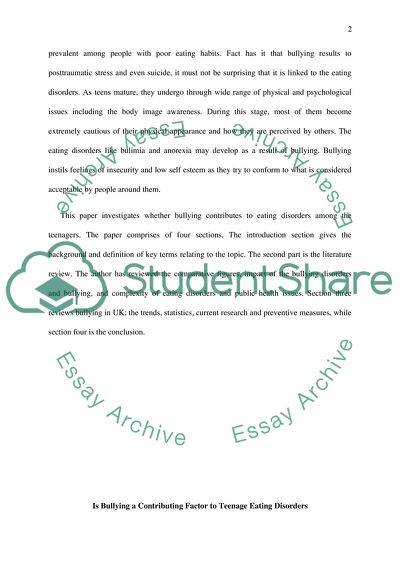Cite this document
(“Is Bullying a Contributing Factor to Teenage Eating Disorders Essay”, n.d.)
Retrieved from https://studentshare.org/family-consumer-science/1635822-is-bullying-a-contributing-factor-to-teenage-eating-disorders
Retrieved from https://studentshare.org/family-consumer-science/1635822-is-bullying-a-contributing-factor-to-teenage-eating-disorders
(Is Bullying a Contributing Factor to Teenage Eating Disorders Essay)
https://studentshare.org/family-consumer-science/1635822-is-bullying-a-contributing-factor-to-teenage-eating-disorders.
https://studentshare.org/family-consumer-science/1635822-is-bullying-a-contributing-factor-to-teenage-eating-disorders.
“Is Bullying a Contributing Factor to Teenage Eating Disorders Essay”, n.d. https://studentshare.org/family-consumer-science/1635822-is-bullying-a-contributing-factor-to-teenage-eating-disorders.


